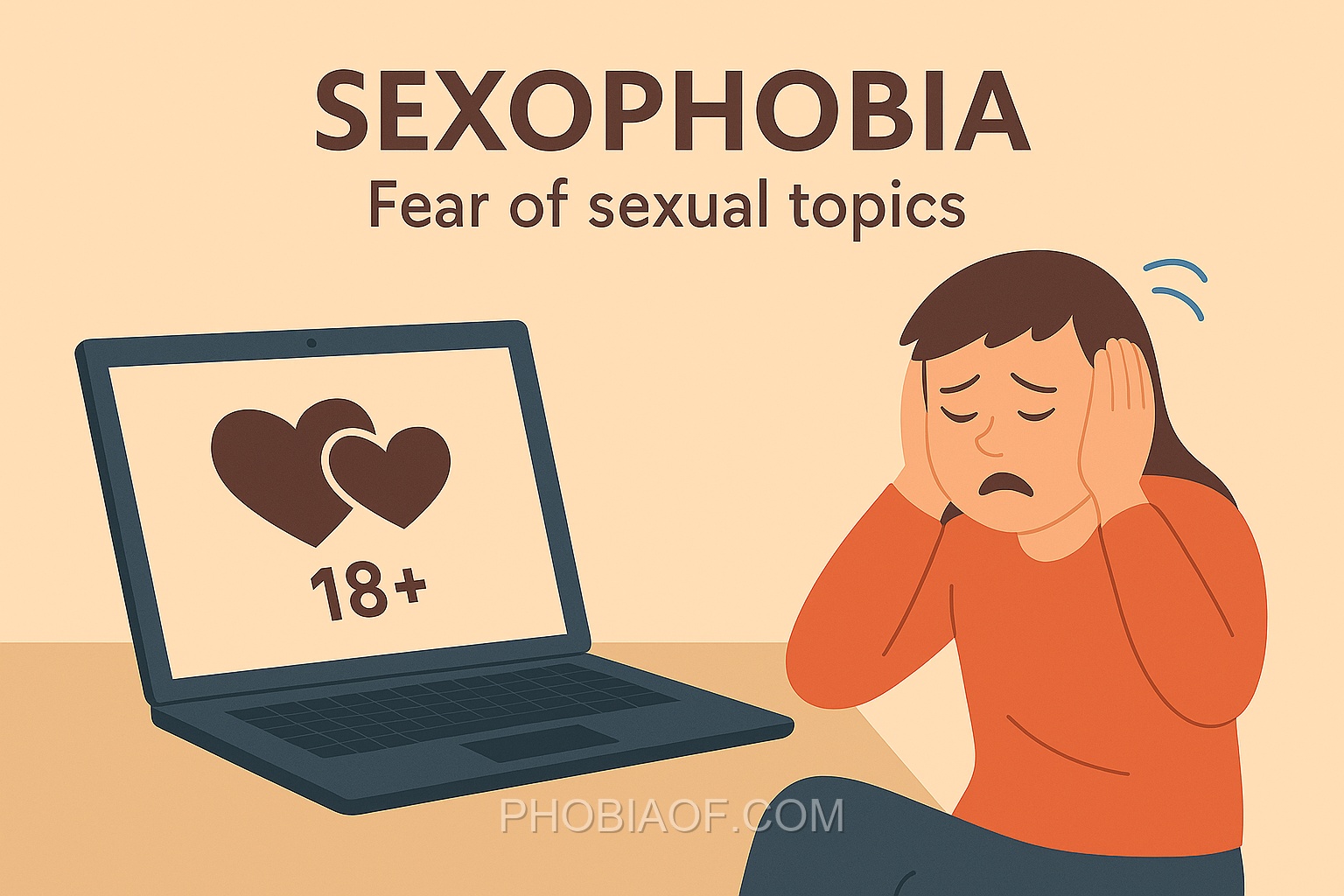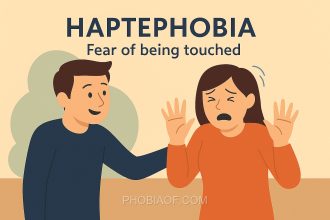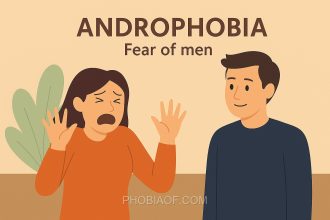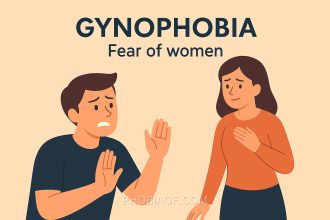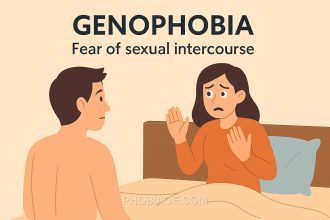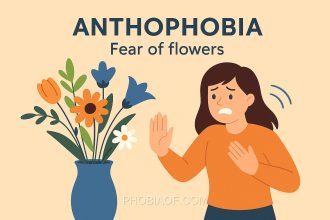Have you ever felt uneasy or anxious when the topic of sex comes up in conversation? If so, you’re not alone. This reaction could be related to Sexophobia, a term that may be unfamiliar to many but is important to understand. Let’s delve into what Sexophobia is and how it affects people’s lives.
Sexophobia is a term derived from the Greek words “sex” meaning sexual and “phobos” meaning fear. It refers to an intense fear or aversion to sexual topics, discussions, or activities. This fear can manifest in various ways, impacting both personal and social aspects of an individual’s life.
For those who experience Sexophobia, the fear can be overwhelming and pervasive. It might prevent them from engaging in healthy and open conversations about sex, hinder their ability to form intimate relationships, or cause distress in situations where sexual topics are unavoidable.
The effects of Sexophobia can be far-reaching, such as:
- Avoidance of dating or romantic relationships.
- Difficulty in discussing sexual health or education.
- Feelings of shame or guilt associated with sexual thoughts or desires.
Understanding and addressing Sexophobia is crucial for fostering a more open and accepting environment where individuals can express themselves without fear or judgment. If you or someone you know is struggling with this fear, seeking professional guidance from a therapist or counselor can be a valuable step towards overcoming it.
Causes of Sexophobia
Sexophobia, or the fear of sexual activity and intimacy, can stem from various causes. Understanding these factors can help in addressing the phobia effectively. Below are some of the most common reasons why someone might develop this fear:
- Genetic Predisposition:
Genetics can play a role in the development of phobias. Individuals with a family history of anxiety disorders may be more susceptible to developing sexophobia. This connection suggests that genetic factors can predispose someone to fear sexual intimacy.
- Traumatic Experiences:
A history of sexual trauma or abuse can lead to sexophobia. Traumatic experiences can create a strong association between sexual activity and feelings of fear or distress, making it difficult for individuals to engage in intimate relationships.
- Learned Behavior:
Sexophobia can also be a learned behavior. Observing or being taught negative attitudes towards sex by parents or influential figures can instill fear. Cultural or religious beliefs that portray sex negatively can reinforce this fear.
- Psychological Factors:
Anxiety disorders, depression, or other mental health issues can contribute to the development of sexophobia. These conditions can amplify fears and lead to avoidance behaviors regarding sexual situations.
- Environmental Factors:
Societal pressures and unrealistic expectations about sex can contribute to sexophobia. Media portrayals of sex can create anxiety about performance or body image, discouraging individuals from engaging in sexual activity.
While these factors can contribute to sexophobia, it’s important to note that each individual’s experience is unique. Research continues to explore the complex interplay of these causes, hoping to provide better support and treatment for those affected.
Symptoms of Sexophobia
Sexophobia, or the fear of sexual intimacy or sexual situations, can evoke intense fear or anxiety in those affected. Recognizing the symptoms is the first step towards understanding and addressing this phobia. The symptoms can be categorized into physical and emotional/behavioral signs:
Physical Symptoms:
- Panic attacks, often characterized by a sudden onset of intense fear or discomfort.
- Excessive sweating, particularly when faced with sexual situations or even the thought of them.
- Rapid heartbeat, which can occur as the body’s response to fear.
- Shortness of breath or hyperventilation in anticipation of or during exposure to a sexual situation.
- Nausea or gastrointestinal distress, which can accompany anxiety and panic.
- Trembling or shaking, often uncontrollable and induced by fear.
Emotional/Behavioral Symptoms:
- Avoidance of sexual situations or anything that might lead to intimacy, such as dating or romantic relationships.
- Overwhelming dread or fear when thinking about sex or sexual intimacy.
- Feelings of guilt or shame associated with sexual thoughts or encounters.
- Difficulty in forming or maintaining intimate relationships due to fear.
- Intrusive thoughts about sex that cause distress or anxiety.
- Hyper-vigilance in situations that may potentially lead to sexual contact.
If severe, these symptoms can significantly interfere with daily life, impacting relationships, self-esteem, and overall well-being.
Treatment for Fear of Sexual Topics
It’s important to know that the fear of sexual topics, often referred to as Sexophobia, can be effectively treated and managed over time. With the right support and approach, individuals can overcome this phobia and lead a more fulfilling life. Below are some treatment options and coping strategies that have proven helpful for many.
Therapeutic Approaches
- Exposure Therapy: This method involves gradually exposing oneself to the feared topic in a controlled and safe environment. The goal is to reduce anxiety over time by facing the fear directly, allowing the individual to build resilience and reduce avoidance behavior.
- Cognitive-Behavioral Therapy (CBT): CBT helps individuals identify and change the negative thought patterns that contribute to their fear. By reframing these thoughts, individuals can reduce their anxiety and respond to triggering situations more calmly.
- Counseling: Speaking with a therapist or counselor can provide a supportive space to explore the origins of the phobia and develop personalized strategies to address it. This can also include psychoeducation about sexual health and topics, reducing the stigma and fear associated with them.
Self-Help Coping Techniques
- Relaxation Exercises: Techniques such as deep breathing, progressive muscle relaxation, and visualization can help manage anxiety symptoms and promote a sense of calm.
- Meditation: Regular meditation practice can help increase mindfulness and reduce overall stress levels, making it easier to cope with phobic reactions.
- Support Groups: Joining a support group can provide encouragement and a sense of community, as sharing experiences with others facing similar challenges can be incredibly validating and empowering.
Additional Considerations
In some cases, medication such as anti-anxiety drugs might be prescribed, particularly if the phobia is severe and significantly impacts daily functioning. However, a focus on therapy and developing coping skills is generally recommended as the primary approach.
If you find that Sexophobia is interfering with your life, it is crucial to seek professional help. A mental health professional can guide you through these options and help you find the most effective treatment for your situation. Remember, overcoming a phobia is a journey, and taking the first step towards treatment is already a significant achievement.
Conclusion
Understanding the causes and symptoms of sexophobia is a crucial step towards empowerment and change. By recognizing the underlying factors and manifestations of this fear, individuals can begin to take proactive steps in addressing and overcoming their phobia.
It’s important to remember that many people successfully manage or even conquer their phobias with time, patience, and appropriate support. Seeking help from a therapist or consulting with a doctor can be a valuable part of this journey, providing tailored strategies and guidance to navigate the challenges posed by sexophobia.
Encouragement: You are not alone in this journey, and there is hope for a more comfortable relationship with sexual topics. With the right resources and support, overcoming sexophobia is a realistic and achievable goal. If you find yourself struggling, consider reaching out for professional help. Remember, taking the first step towards understanding and addressing your fears is a powerful move towards a healthier and more open approach to sexuality.
